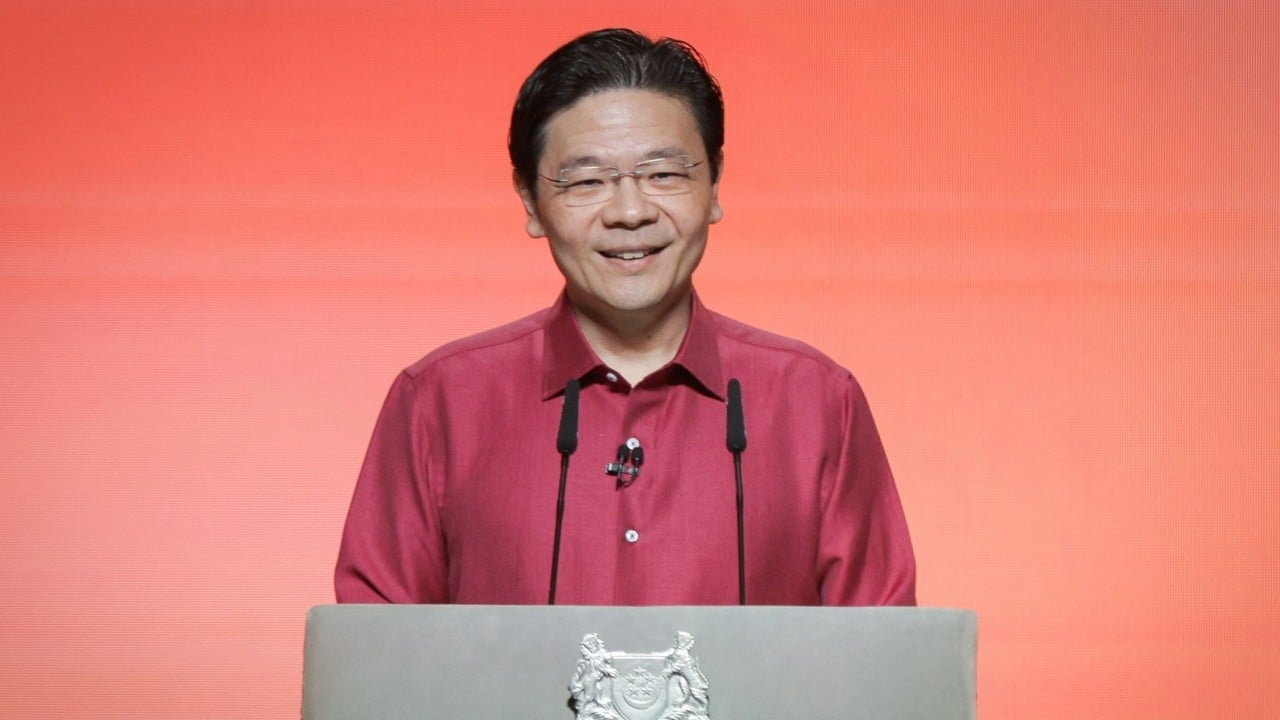Singapore PM Lawrence Wong promises policy reset to widen social safety net in first National Day Rally speech
In his first National Day Rally, Singapore’s newly minted Prime Minister Lawrence Wong declared a reset of policies that would involve the government widening its social safety net.
This includes providing an unemployment payment scheme and increasing state-sponsored parental leave by 10 weeks, amounting to 7½ months in total for parents.
A long-established pillar of the city state’s education system, the Gifted Education Programme (GEP), which identifies and stretches “students with higher abilities”, will be revamped and available to all schools as well, as part of Wong’s vision of a more inclusive society.
The speech, which saw Wong address Singapore in Malay, Mandarin and English, is one of the key political speeches in the city state and the first major one Wong has given since his swearing-in speech in May.
Wong, who took over the reins from Lee Hsien Loong, the son of founding prime minister Lee Kuan Yew, said Singapore had reached a stage where everyone wanted a “refreshed Singapore Dream”.
“Realising our new ambitions will require a major reset – a major reset in our policies, to be sure; but equally important, a major reset in our attitudes too,” said Wong, 51.
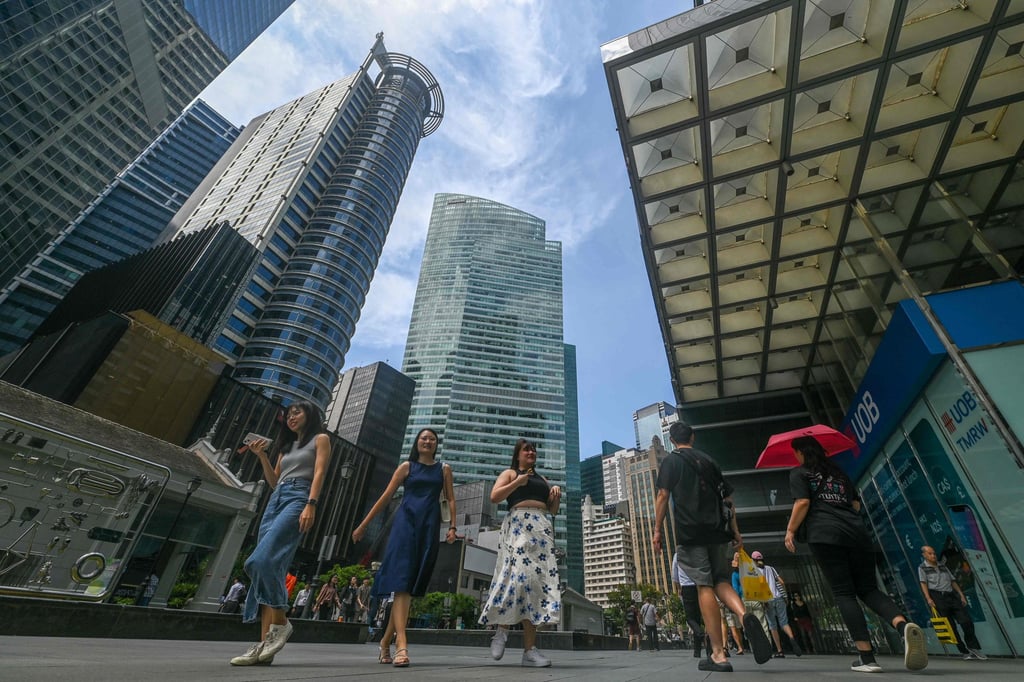
Wong took a no-stone-unturned approach to the policy reset, announcing new measures in almost all spheres of Singapore life, from the economy and families to housing and education.
Support for retrenched and unemployed workers is an issue that the Singapore government has been studying, amid opposition calls for unemployment insurance.
According to official data, Singapore’s unemployment rate dipped to 1.9 per cent in 2023 after peaking at 3 per cent during the Covid-19 pandemic in 2020.
Wong said the Singapore government sought an alternative for unemployment insurance after finding that the experience of other countries was not positive, as workers who received unemployment benefits might find it more attractive to remain unemployed.
“But we also know that losing a job is a major setback, which can seriously destabilise workers and their families. And we have to do something – to lessen the strain on those who are affected,” he said.
The government would introduce a new SkillsFuture Jobseeker Support scheme to provide temporary financial support for lower- and middle-income workers who had lost their jobs, Wong said.
A maximum of S$6,000 (US$4,560) over a period of up to six months would be disbursed to such workers, Wong said, urging workers to go for training, career coaching, and job-matching services.
“This is the essence of our renewed social compact. We will have your back and stand by you; but you too must take responsibility for your actions, and make an effort to pull yourself up,” Wong said.
From next year, the government will also provide a new training allowance under the SkillsFuture Level-Up programme which will allow workers to receive an allowance of up to S$3,000 a month if they take time off from work to study full time. Singaporeans aged 40 and above can benefit from this.
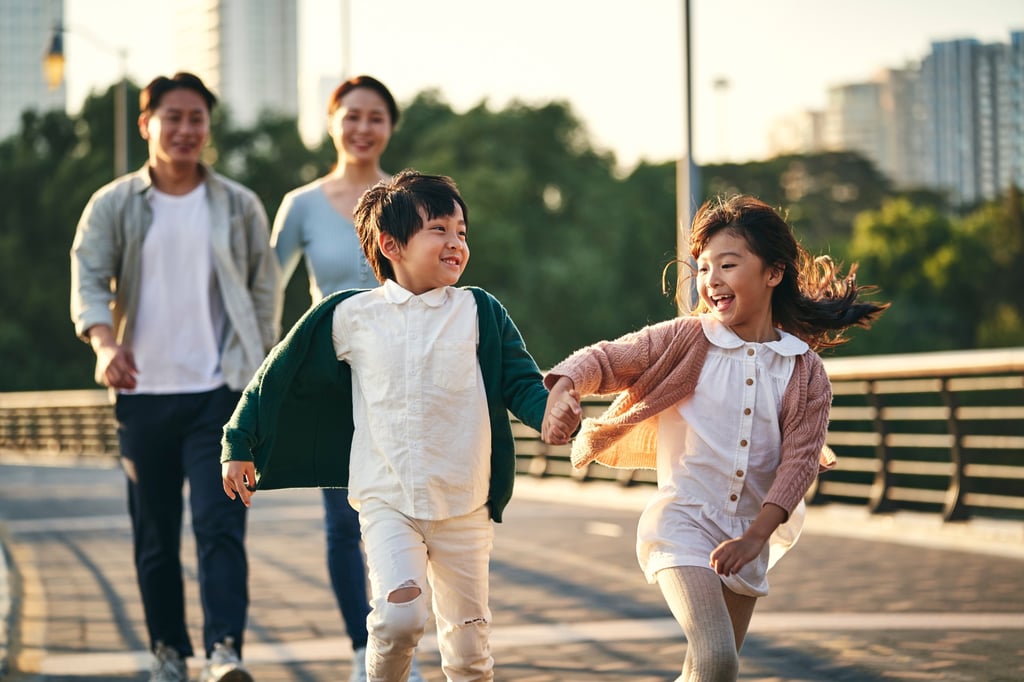
The prime minister said the city state aimed to build a “Singapore made for families” and to achieve this, from April 1 next year employers would be required to grant a full four weeks of paternity leave.
Singapore first introduced government-paid paternity leave in 2013 and last year announced a doubling of the leave from two weeks to four for fathers of children born after January 1, 2024. Employers currently have the discretion of whether to grant the additional two weeks.
While fathers currently have four weeks of paternity leave and mothers have 16 weeks of maternity leave, husbands can share up to four weeks of their wives’ maternity leave.
However, this would be replaced with 10 additional weeks of shared leave, Wong said. “The additional leave will be shared between parents – it means either fathers or mothers can take it,” he said.
The initiative will be rolled out in two tranches. From April 1 next year, six weeks of shared parental leave will be provided. This will be increased to the full 10 weeks a year later.
This means that aside from the current four weeks fathers enjoy and the 16 mothers have, both will have 10 weeks of government-paid leave to share between them.
“That’s 30 weeks, or about 7.5 months, of paid leave, which parents can take to spend time with their children,” Wong said.
He also announced a new scheme providing support for families thinking about having a third child and those who already have three or more young children. More details will be shared at next year’s Budget speech, which typically takes place in February.
“I hope this move will go some way in reassuring young couples – we are building a Singapore made for families; and we will help you keep a good balance between your working and parenting responsibilities.”
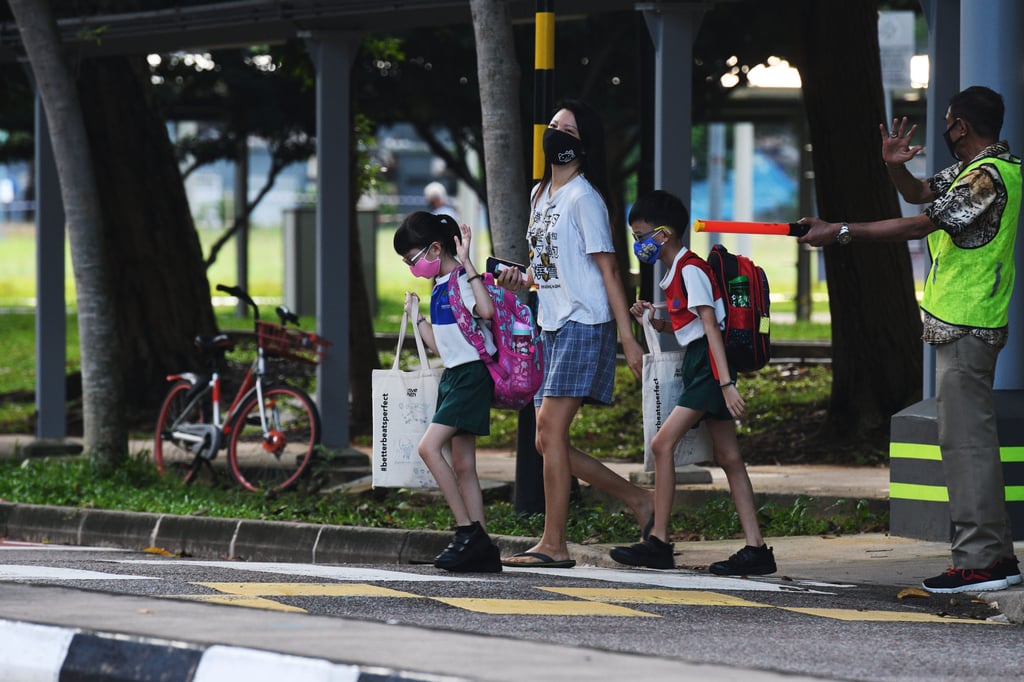
According to Wong, the GEP, which was introduced in 1984, will be replaced with a new approach to “stretch students with higher abilities” across all primary schools, as opposed to the current form which involves “gifted” students changing schools if their primary schools do not offer the programme. Nine primary schools offer GEP.
“Every primary school will have its own programmes to stretch these students in their areas of strength and interest,” Wong said.
He added that beyond the school-based programmes, there would be some students who could benefit from “even further stretch in particular subjects”.
“They can come together for after-school enrichment modules in a nearby school, to learn and interact with one another,” Wong said, adding that Education Minister Chan Chun Sing would provide more details at a later date.
While this was “a significant change”, Wong said it was “consistent with our philosophy in education” that the government would care for and develop every child regardless of their starting points.
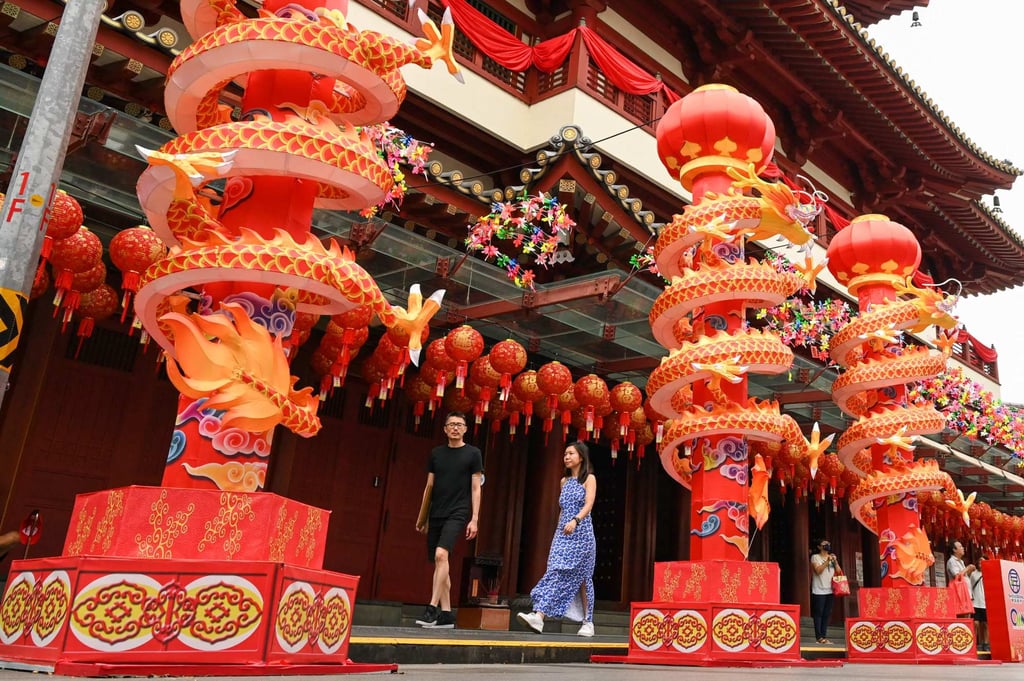
Earlier in his Mandarin speech, Wong acknowledged that the Chinese community in Singapore was very concerned about the standard of Mandarin in Singapore, since many, like him, spoke mainly English at home.
“Although English is our working language, we are fundamentally an Asian society, not a Western one. We want to retain our Asian heritage and preserve our traditional values,” Wong said.
“Our bilingual and bicultural edge has enabled us to draw the best from the East and the West. It has also allowed us to connect with other countries. This is why we have been able to maintain our unique competitiveness over the years.”
He announced changes to the education system that would allow more students to take a more advanced Chinese language subject regardless of their overall grade.
Currently, students wishing to take the Higher Chinese Language advanced subject must ensure their overall grades for the Primary School Leaving Examination – which children take when they are 12 years old – meet a certain standard.
Students who want to take Higher Malay and Tamil will also benefit, and the education ministry will reveal more details at a later date, according to Wong.
He added that the government would continue to support the Singapore Chinese Cultural Centre, the clan and trade associations, Chinese media and cultural groups to actively promote Chinese culture in Singapore.


